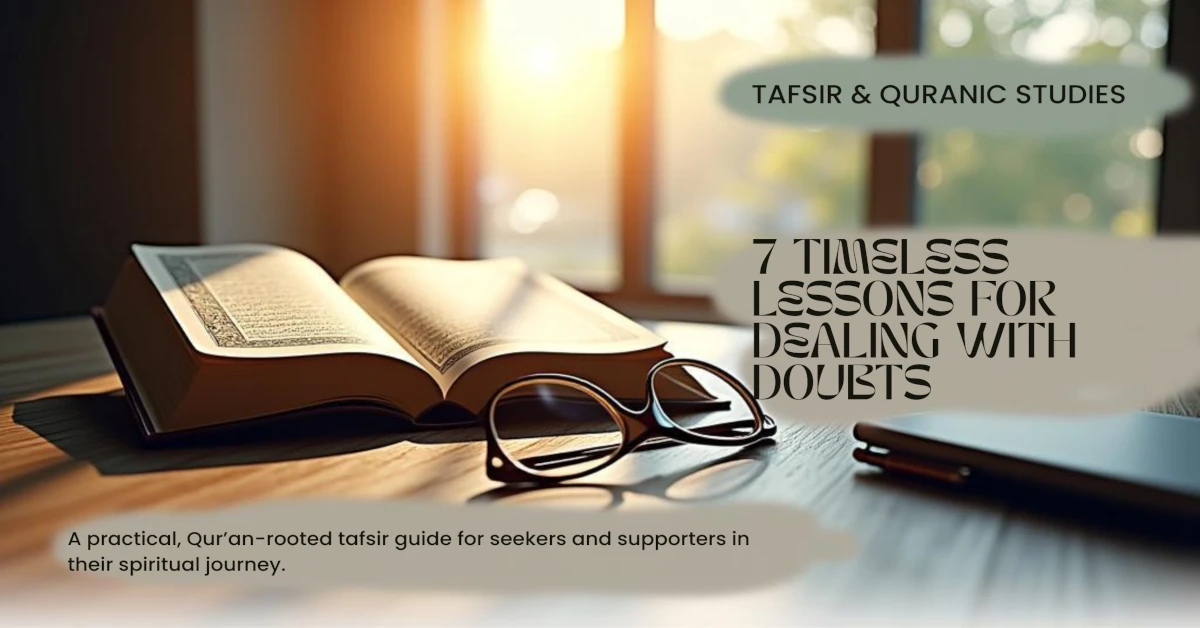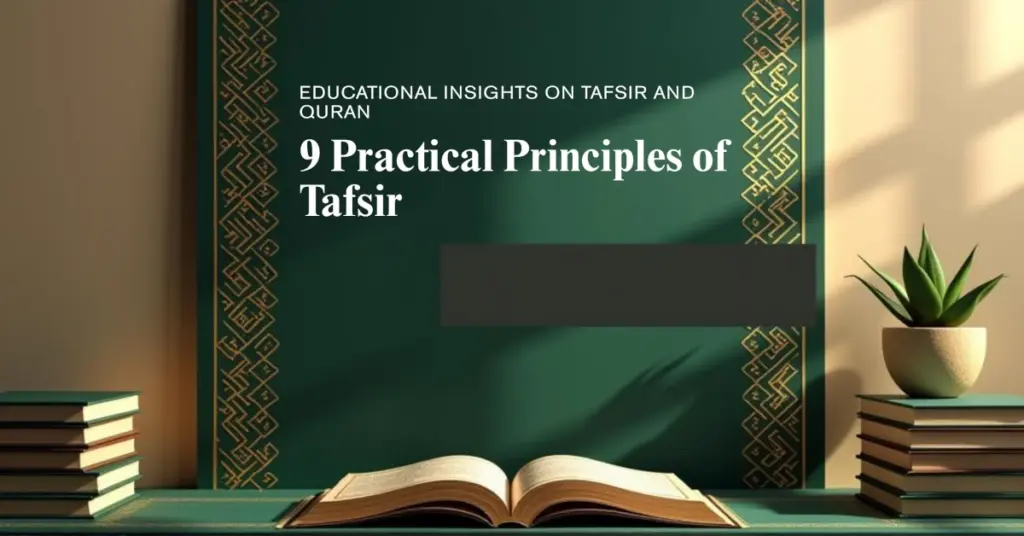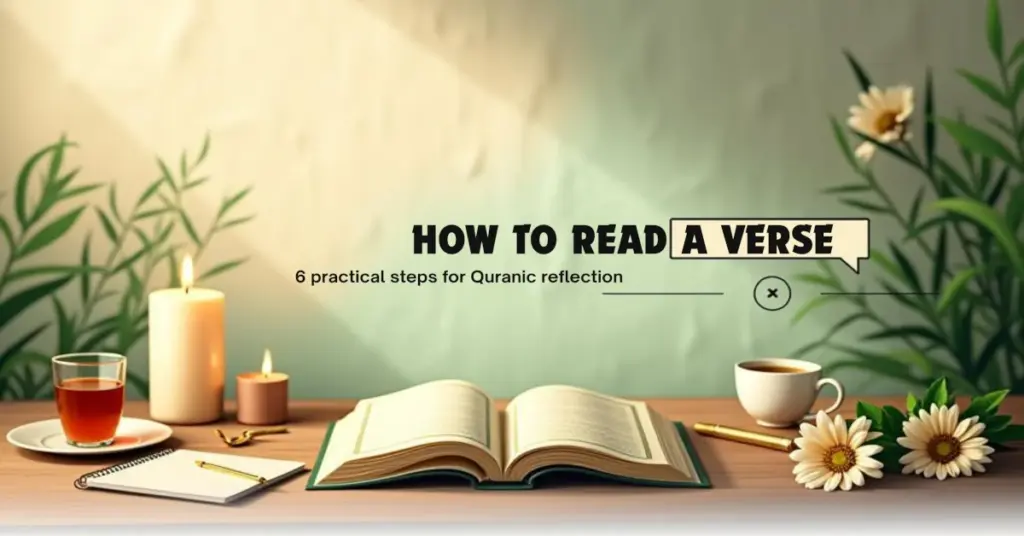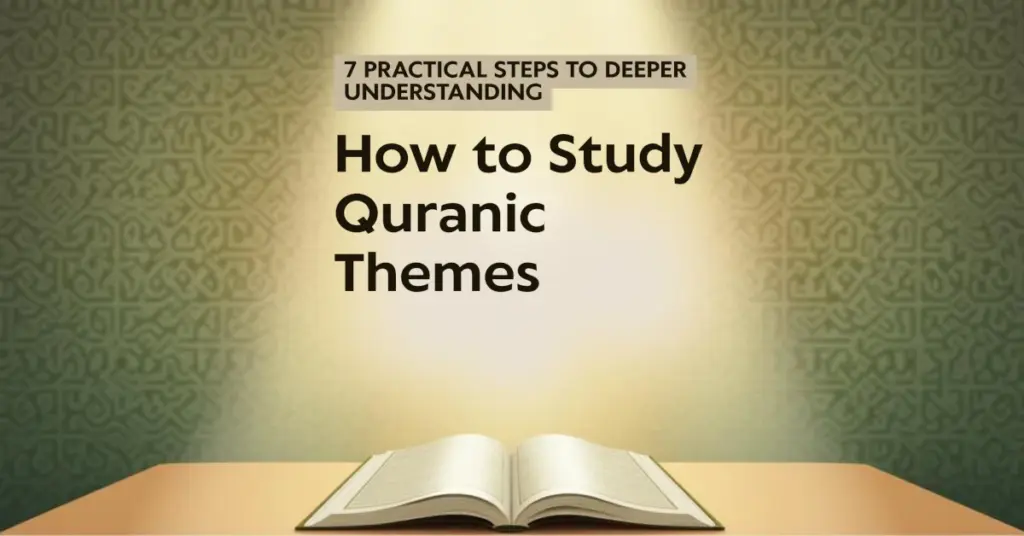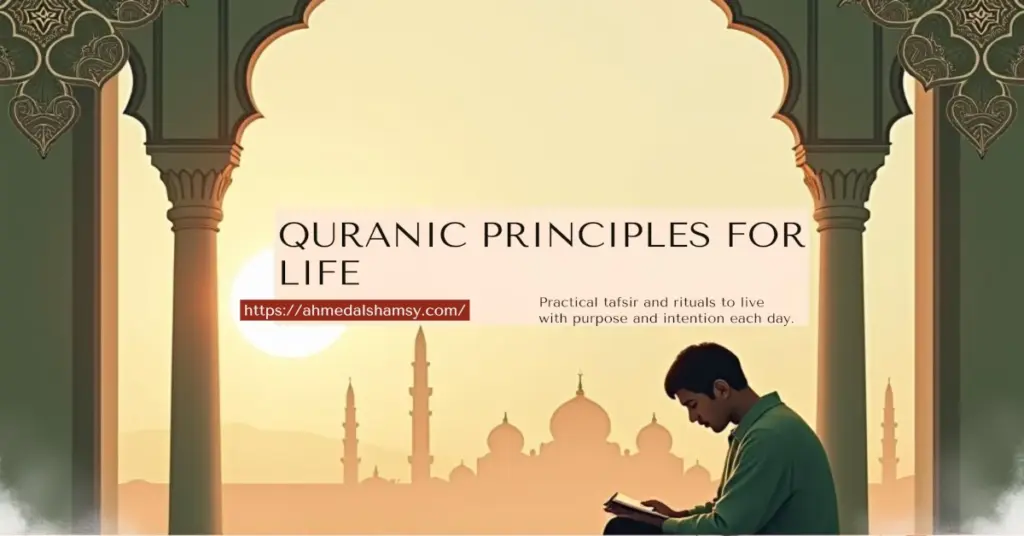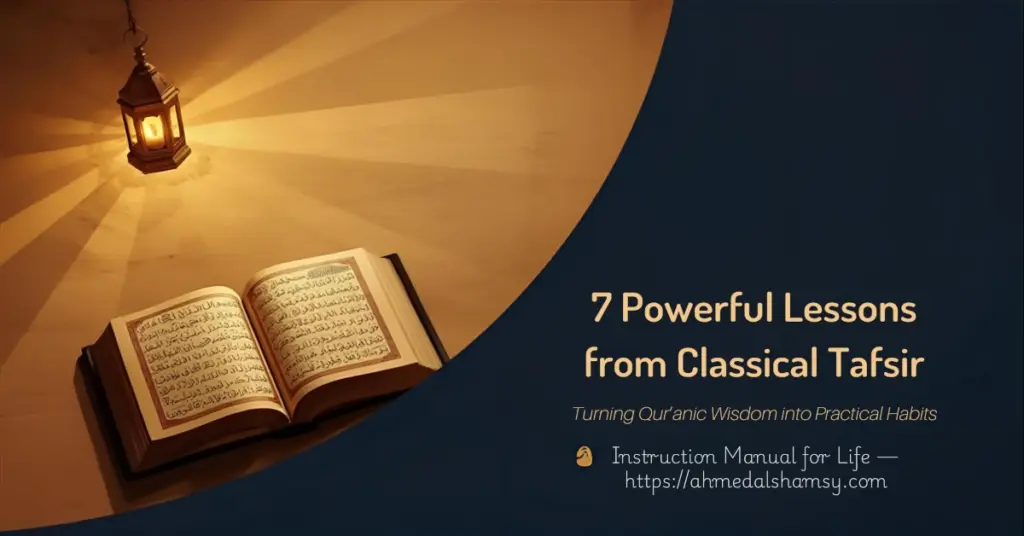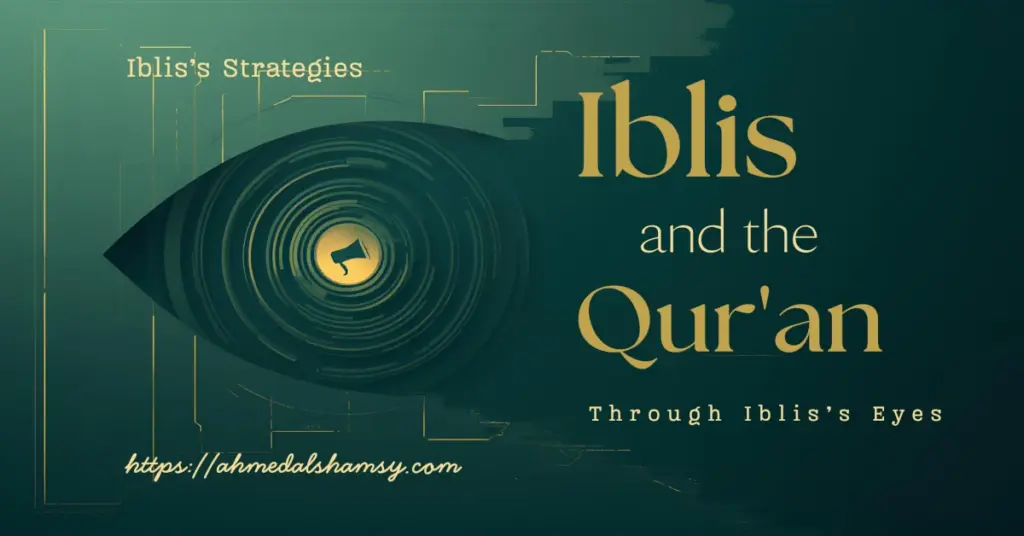AIM — Free & Open
CC BY-NC-SAAIM is free and open for non-commercial reuse. Try a free AIM pilot (CSV + memo) — support is optional and helps sustain translations, research, and free access.
Dealing with doubts in Islam can be an unsettling journey. This practical tafsir guide offers seven compassionate lessons, grounded Qur’anic examples, and clear steps for seekers and supporters. Learn Dealing with Doubts in Islam, how to frame questions, consult trusted scholarship, combine pastoral care with mental-health support, and rebuild spiritual resilience through small, sustainable practices. Ideal for Muslims and non-Muslims seeking honest, evidence-based approaches to faith and doubt while fostering respectful interfaith and community dialogue.
EXECUTIVE SUMMARY
- Doubt is common and often signals an active search for coherence rather than failure; Dealing with Doubts in Islam, the Qur’an and prophetic practice model patient inquiry and pastoral care.
- This guide explains types of doubt, a Qur’an-rooted method for approaching hard verses, practical first steps for doubters, and how friends and communities should respond.
- It offers seven constructive lessons and a six-month recovery plan that blend tafsir, pastoral support, mental-health care, and small spiritual practices.
- Key takeaway: combine careful textual method, compassionate listening, and professional help where needed; doubt can lead to deeper conviction or a dignified, humane transition.
Table of Contents
Introduction: Dealing with Doubts in Islam

Dealing with Doubts in Islam, Doubt comes in many shapes: sudden philosophical questions after a late-night reading; existential crises following trauma; moral unease with historical texts or legal rulings; or quiet erosion caused by social tension. Doubt is seldom a single thing — it is a process. For the believer it may feel like a rupture; for the doubter it may be an honest search for coherence. The Qur’an and the classical Islamic tradition provide method and attitude for these moments: reflection not hostility, evidence not scorn, and pastoral care not punishment.
This article -Dealing with Doubts in Islam- lays out a Qur’an-rooted, practice-oriented response to doubt — what it is, why it arises, how to engage it, and how to support others – using concrete Qur’anic verses as examples under each major heading so readers can see the scriptural practice applied.
1. How common are doubts, and why they matter
Doubt is a human experience, not an anomaly reserved for a few. Dealing with Doubts in Islam, Contemporary studies show that intellectual challenges, social pressures, and traumatic life events commonly trigger episodes of questioning in many Muslim communities 1 . The Qur’anic reassurance in 2:286 — that God does not overburden a soul — helps reframe doubt: it is often a manageable burden rather than evidence of moral failure.
Adding the prophetic dimension strengthens this pastoral frame. Dealing with Doubts in Islam, The Prophet ﷺ himself faced moments of heavy responsibility and intimate sorrow (e.g., the early Meccan trials, the loss of loved ones) and modeled how to carry strain with prayer, consultation, and perseverance; traditions that preserve his gentleness toward questioners emphasize hospitality rather than condemnation [8]. A relevant hadith reports the Prophet’s compassion for those who struggle internally, demonstrating that spiritual leaders may respond to doubt with care and accompaniment rather than punishment 2 .
Dealing with Doubts in Islam, Practically, this means communities should respond to doubt with listening, trustworthy scholarship, and referral to clinical help when needed. Stigma and secrecy drive seekers toward hostile online spaces; an ethic of humane reception (grounded in 2:286 and the prophetic example) keeps people in relationship while they work through doubts 3 .
2. Common types of doubt and the questions they spark
Dealing with Doubts in Islam, Doubts typically cluster into categories that call for different responses:
- Intellectual doubts — e.g., questions about textual variants, historical context, or apparent conflicts with modern science. These require careful study of language, context, and reputable scholarship 4 .
- Emotional/existential doubts — grief, trauma, or depression can make faith feel distant; these need pastoral and psychological care as a priority.
- Moral doubts — discomfort with specific rulings or stories in the sources; these benefit from maqasid (objectives of Sharīʿah) and contextualization 5 .
- Social/identity doubts — when social cost, family pressure, or belonging shapes attitudes; these need relational repair and community safety.
Dealing with Doubts in Islam, Reading Qur’an 3:191, which pairs meditation on creation with remembrance, shows that the tradition values reflective inquiry — so an intellectual question is not a moral failing but a legitimate step toward insight.
3. A Qur’anic starting point: question with humility and evidence
The Qur’an repeatedly invites proving claims and warns against following claims without evidence. Dealing with Doubts in Islam, When a doubt arises, the disciplined approach is methodological: (a) formulate the precise question, (b) gather relevant textual contexts, and (c) consult qualified interpreters. The prophetic model combines humility with investigation. If one reads 17:36 together with 2:111, the message is clear: avoid rash conclusions; request evidence; and be ready to examine questions patiently.
4. Tools from classical tafsir and juristic method
Dealing with Doubts in Islam, The classical tradition developed interpretive tools precisely to handle textual complexity; 39:9 underscores the value the Qur’an places on knowledge-seeking as the proper posture for understanding scripture. Useful tools that still apply today include:
- Asbāb al-nuzūl and contextual reading: learning why a verse was revealed often clears up apparent oddities; many legal or narrative verses were responses to specific historical problems 6 .
- Linguistic and rhetorical analysis: Arabic words have semantic ranges; philological work can resolve misunderstandings that arise from literalized translations.
- Maqāṣid orientation: reading rulings through the higher objectives of Shari‘ah (protection of life, intellect, dignity, property, and faith) clarifies why a law took the form it did and helps translate its principle into contemporary policy.
- Usūl al-fiqh tools: qiyās (analogical reasoning), maslahah (public interest), and istihsan (equitable preference) show the tradition’s internal mechanisms for adaptation and principled flexibility.
- Theological conversation (kalam): historical debates over reason, revelation, and proof (e.g., Mu‘tazilite and Ash‘arite discussions) equip modern readers to approach epistemological objections with nuance.
Dealing with Doubts in Islam, Taken together – and framed by the Qur’anic valuation of learning in 39:9 — these methods shift the questioner from a polemical stance to a disciplined investigation: contextualize, analyze linguistically, weigh higher aims, and consult juristic instruments that have long enabled responsible adaptation.
5. Practical first steps for someone experiencing doubt
Dealing with Doubts in Islam, Practical, bite-sized steps reduce the paralysis that doubts can cause:
- Pause media-exposure — stop the late-night algorithmic feeding on polemical content. Mental space reduces escalation.
- Isolate the core question — write it in one sentence; this clarifies whether it is historical, moral, or existential.
- Match the helper — theological or tafsir questions → a reputable scholar; scrupulous or intrusive anxiety → a clinician experienced with faith matters.
- Small devotional anchors — short dhikr, a single ayah recited slowly, or two minutes of reflective silence help preserve inner balance (2:153).
- Set learning objectives — read a trustworthy tafsir excerpt, then summarize it in your own words.
Dealing with Doubts in Islam, These steps echo Qur’anic counsel to seek help through patient practices (2:153), marrying spiritual routine with practical inquiry.
6. How to have constructive conversations about doubt
Dealing with Doubts in Islam, Supporting someone in doubt is an art of listening, not interrogation. The Qur’anic command in 16:125 provides a rhetorical ethic: invite with wisdom, teach with good instruction, and prioritize ethical discourse over spectacle. Practical techniques include:
- Active listening (reflecting back content).
- Socratic questioning (helping the person test assumptions).
- Co-learning (read a tafsir passage together and discuss).
- Boundaried curiosity (don’t demand immediate answers; avoid shaming).
Dealing with Doubts in Islam, Dialogue based on 16:125 centers relationship and reason, not shaming or spectacle.
7. Who to trust – a short guide to sources

Dealing with Doubts in Islam, This verse is a direct instruction: consult knowledgeable sources. Practically, that means preferring (a) primary texts (Arabic Qur’an and sahih hadith) with critical notes, (b) classical tafsir and recognized modern exegesis (with transparent methods), (c) peer-reviewed or academically vetted scholarship for historical questions, and (d) culturally competent clinicians for mental-health issues 7 8 9. Dealing with Doubts in Islam, Online content must be evaluated by credentials, methodology, and citation practice – prefer works that cite primary sources and engage in scholarly conversation. Verse 10:94 anchors the ethic: ask those who read and understand the scripture. 10
8. A step-by-step method to approach difficult Qur’anic verses
Dealing with Doubts in Islam, A disciplined process:
- Read the verse in its surah context — check surrounding passages.
- Check asbāb al-nuzūl to know the historical prompt.
- Look at classical tafsir (Ibn Kathir, Al-Tabari) to see traditional interpretations.
- Consider linguistic range — alternative meanings of key words.
- Ask maqasid-based questions: What higher value does this verse promote?.
- Examine prophetic practice for applied meaning.
- Consult modern scholarship for reconstructed historical perspective.
Dealing with Doubts in Islam, This method reduces hasty literalism and respects both textual integrity and historical insight.
9. Responding to atheistic or materialist objections
Dealing with Doubts in Islam, When faced with scientistic or materialist challenges, a single “knockout” proof is rarely decisive for sophisticated interlocutors. Instead, the cumulative case approach gathers multiple lines of evidence that together make belief plausible and worthy of serious consideration. The “signs” of 3:190 can be presented concisely as follows:
- Cosmological contingency and origin (cosmological sign): the universe’s beginning and the need for a sufficient explanation is a philosophical prompt; cosmology suggests the universe is not self-explanatory, which opens space for metaphysical accounts. Dealing with Doubts in Islam, Keep this short: point to the basic issue (why is there something rather than nothing) rather than long technical argumentation.
- Fine-tuning and order (teleological sign): the remarkable capacities of physical constants and conditions to permit complexity and life are striking; they provide evidence that the universe’s laws are hospitable to life in a narrow range — a datum many find awe-inspiring.
- Emergence of consciousness (phenomenological sign): subjective experience — qualia, self-awareness, intentionality — resists easy reduction to physical descriptions; the phenomenon of consciousness raises questions about the completeness of materialist explanations.
- Moral experience (ethical sign): Dealing with Doubts in Islam, widely shared human intuitions about justice, dignity, and moral obligation suggest a moral dimension that requires explanation beyond brute biological drives; such ethical experience is part of the data set we weigh.
- Historical testimony and transformation (sociological sign): the transformative social effects of a religious system — large-scale moral reforms, institutions of welfare, and personal moral exemplars — function as social evidence about the religion’s practical truth-claims.
How to use these signs practically in conversation:
- Keep it cumulative, not confrontational: present each sign briefly and invite dialogue about which datum the interlocutor finds most pressing.
- Clarify the evidentiary standard: ask whether they demand empirical falsification or are open to inductive, cumulative reasoning. Re-framing the debate about standards of proof often avoids category errors.
- Be ready to say “I don’t know” on technical points — intellectual humility increases credibility.
- Offer shared resources (concise readings, accessible surveys) rather than long lectures.
Dealing with Doubts in Islam, This concise, evidence-friendly posture follows the Qur’anic invitation in 3:190 to examine the world’s order; it avoids over-reliance on a single argument and instead builds a reasonable, humane cumulative case that respects both scientific insight and metaphysical questions 11 12 .
10. Mental health, intrusive thoughts, and scrupulosity
Dealing with Doubts in Islam, Some “doubting” experiences are clinical: intrusive, repetitive thoughts, compulsions, or debilitating guilt (scrupulosity). The Qur’an’s promise of eventual ease (94:5–6) encourages sufferers, but clinical intervention often matters: cognitive behavioral therapy, ERP, and culturally sensitive clinicians trained in faith contexts make a measurable difference. Pastoral counselling should collaborate with mental-health professionals rather than substitute for them.
11. Rebuilding faith: small practices that scale
Dealing with Doubts in Islam, Large intellectual victories rarely restore faith in isolation. Ongoing small practices — short prayer, a daily verse, consistent charity, small study circles — rebuild habituation and identity (2:152). These micro-practices work psychologically by restoring routine and spiritually by reorienting the heart.
12. Dealing with hard history and moral discomfort
Dealing with Doubts in Islam, Historic episodes that trouble modern readers must be examined in context. This doesn’t mean apologetics without rigor; it means combining historical scholarship, ethical principles, and moral imagination. If a passage appears morally problematic, ask: what was the immediate social problem it addressed? Dealing with Doubts in Islam, What principle did it aim to protect (e.g., justice, mercy)? How could that principle be expressed today? Using maqasid-based reasoning and modern ethics helps reconcile distressing details with Qur’anic values like justice and compassion (16:90).
13. A short, practical reading & recovery plan (six months)
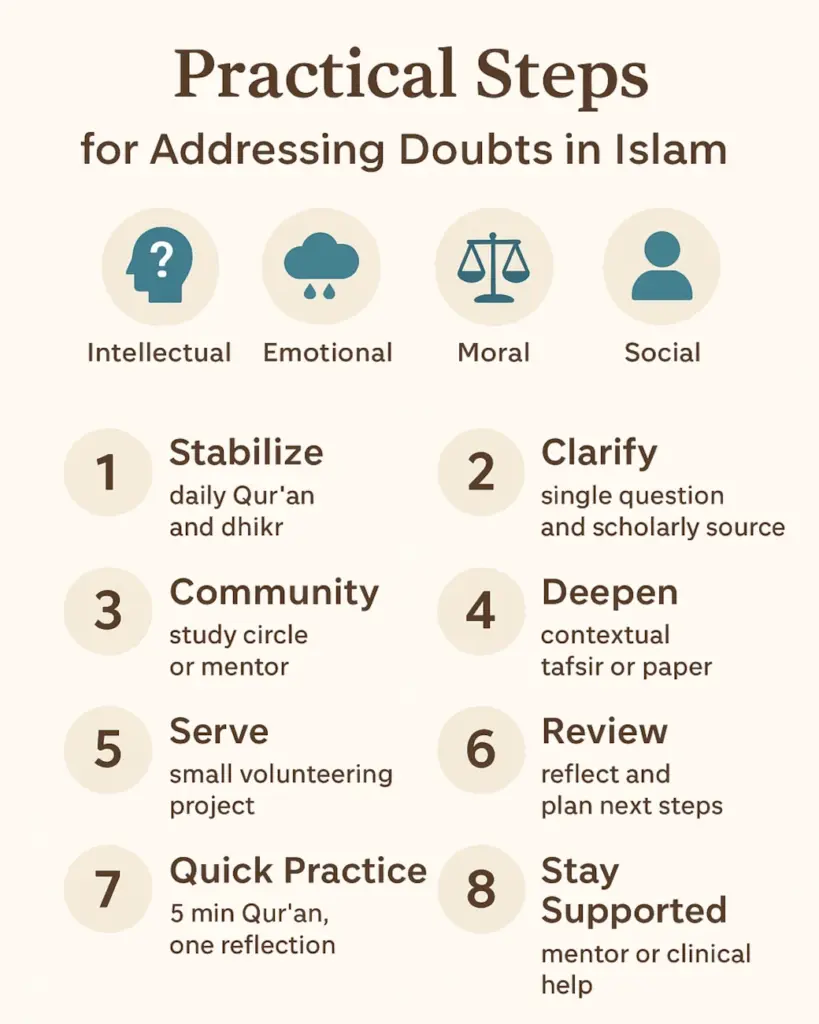
Dealing with Doubts in Islam, A compact plan:
- Month 1 — Stabilize: daily five minutes of Qur’an + a short trusted tafsir of a favored surah (96:1 invites humble beginning).
- Month 2 — Clarify: identify top 1–3 doubts and pick one scholarly source to read.
- Month 3 — Community: join a calm study circle or mentorship.
- Month 4 — Deepen: read a historical/contextual article with notes.
- Month 5 — Serve: find a small volunteering activity to rebuild moral habit.
- Month 6 — Reflect: evaluate, continue what helps, and seek clinical help if intrusive symptoms persist.
This plan blends study, spiritual practice, social life, and action.
14. If the outcome is leaving faith – respond with dignity
Some who honestly examine the texts will step away. Dealing with Doubts in Islam, The Qur’an’s strong ethical command in 2:256 frames response: avoid coercion; preserve dignity; protect welfare. Families and communities should prioritize humane treatment and civic safeguards rather than punitive measures. Ethical behavior toward those who leave preserves moral integrity and community credibility.
15. Closing reflections: doubt as test and doorway
Dealing with Doubts in Islam, The prophetic model is patient, compassionate, and wise in shepherding people through difficulty (3:159). Doubts may become tests that sharpen faith or doorways to other paths; the humane response is to cultivate an ecosystem of scholarship, pastoral care, mental-health support, and patient community. When doubt meets hospitality rather than shaming, the result is more often constructive: disciplined inquiry, restored conviction, or dignified transitions.
FAQs
Is doubt sinful?
Not necessarily. The Qur’an models sincere questioning; what matters is how you respond — with honesty, humility, and ethical conduct — rather than hiding or reacting in ways that harm yourself or others.
Who should I talk to about faith-related doubts?
Match the helper to the problem: theological or tafsir questions → a reputable, qualified scholar; mental-health or intrusive symptoms → a culturally competent therapist; pastoral support → a trusted mentor or imam who listens without judgment.
How should I approach a difficult Qur’anic verse?
Use a layered method: read the verse in its surah context, consult classical tafsir and asbāb al-nuzūl, check linguistic possibilities, consider maqāṣid (objectives), examine prophetic practice, and consult qualified modern scholarship.
Will asking questions make me leave Islam?
Sometimes questions lead to deeper faith; sometimes they lead away. The key is honest, supported inquiry — many people strengthen their beliefs through careful study and pastoral/clinical support.
Are online videos and forums reliable for answering doubts?
Use caution: many online sources mix opinion and scholarship. Prefer content that cites primary texts, explains methodology, and is produced by recognized scholars or academic institutions.
How do I know if my doubts are clinical (e.g., scrupulosity)?
Warning signs include intrusive, repetitive thoughts that impair functioning, compulsive checking, or overwhelming guilt. In such cases seek a mental-health professional experienced with faith and scrupulosity.
Can studying tafsir and fiqh resolve doubts?
Often yes — especially for intellectual doubts. But combine study with pastoral care and, when needed, mental-health support; some doubts are emotional or social and require non-scholarly help.
How can friends and family support someone with doubts?
Listen without pressure, avoid shaming, offer to learn together, recommend trusted resources, and encourage professional help if there are signs of serious anxiety or depression.
How long does it take to overcome a period of doubt?
There is no set timeline. For some, weeks of structured study and community support help; others need months or therapy. Patience, small practices, and reliable support speed recovery.
Can doubt ever lead to stronger faith?
Yes – when engaged honestly and compassionately, doubt can prompt deeper study, more mature conviction, and a faith grounded in understanding rather than habit.
References
- Yaqeen Institute, “Pathways into Doubt” & associated reports. Data-driven research on how contemporaneous exposure to polemical content, social isolation, and educational gaps shapes doubt among Muslim youth; recommends research-backed pastoral interventions and educational reforms. Useful for understanding prevalence and patterns in diaspora communities. ↩︎
- Hadith collections (Sahih al-Bukhari, Sahih Muslim) — selected narrations on compassionate prophetic conduct. Used for ethical exemplars in pastoral guidance and to support references to the Prophet’s methods (e.g., gentleness, consultation). ↩︎
- Clinical and pastoral resources on scrupulosity and faith-related anxiety (NHS guidelines, academic CBT papers). These sources support the article’s recommendations about integrated clinical and pastoral care for intrusive doubts and OCD-like symptoms; they outline evidence-based treatments like CBT and ERP. ↩︎
- Ibn Kathir, Tafsir Ibn Kathir. A classical exegesis widely used in Sunni scholarship; useful for immediate historical interpretive choices and traditional readings of verses cited in the article. Consult critical translations and notes for nuanced readings. ↩︎
- Works on Maqāṣid al-Sharīʿah (Al-Shāṭibī and modern expositors). For readers who wish to study how higher objectives inform legal and ethical priorities in interpreting troubling texts. ↩︎
- Al-Tabari, Tarikh al-Tabari and early sirah materials. For reconstructing asbāb al-nuzūl (occasions of revelation) and historical background that illuminate verses tied to specific events. These works are essential for historical-contextual tafsir. ↩︎
- Seyyed Hossein Nasr (ed.), The Study Quran. An annotated English translation and commentary project useful for readers who want a contemporary scholarly perspective combined with classical notes; particularly helpful for complex exegetical discussions referenced in the article. ↩︎
- Montgomery Watt, Muhammad: Prophet and Statesman. A modern scholarly treatment that situates prophetic actions (including responses to public doubt and treaty-making) within political and social contexts; useful for framing the tradition’s pragmatic dimensions. ↩︎
- Fred Donner, Muhammad and the Believers. Academic study of community formation and the social dynamics of early Islam; helpful for understanding how communal response and reputation affect belief retention. ↩︎
- Clinical articles on faith-related OCD and scrupulosity (Journal of Anxiety Disorders; clinical handbooks). These provide concrete diagnostic criteria and intervention models recommended in the article for cases of intrusive religious doubt. ↩︎
- Interfaith dialogue resources and academic centers (Duke, Berkley Center, interfaith journals). For guidance on respectful methods of conversation with non-Muslims, especially on questions about proof, evidence, and social impact. ↩︎
- Modern translation and commentary projects (Abdel Haleem translation; academic articles on Qur’anic hermeneutics). For accessible contemporary translations and methodological essays on reading Qur’anic language and rhetorical structures. ↩︎
Discover more from Ahmed Alshamsy
Subscribe to get the latest posts sent to your email.

